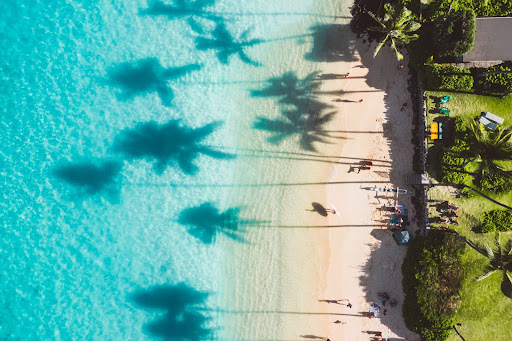Imagine yourself standing on the sun-kissed shores of Hawaii, surrounded by the enchanting beauty of over 100 stunning beaches. Each one holds the promise of unforgettable moments and blissful experiences. But have you ever wondered are all beaches in Hawaii public? If you have, you’re at the right place because, in this article, we are going to answer that question and list down some of the best beaches that you should visit when in Hawaii!
Are All Beaches In Hawaii Public?
Absolutely, yes! Every single beach in Hawaii is freely accessible to the public. These beautiful coastal gems are part of the public domain, ensuring that no one can lay claim to them or limit entry. When visiting these public beaches, it’s essential to utilize designated public access points and demonstrate respect for the surrounding private properties.
Are There Private Beaches In Hawaii?
Well, for the most part, all beaches in Hawaii are considered public and open to everyone. However, there’s a small catch you should know about. Beaches located on federal property, like Iroquois Point and Marine Corps Base Hawaii (MCBH), require military ID for access. These areas are not accessible to the general public since they’re situated within military installations.
Popular Beaches In Hawaii
Here are 10 popular beaches in Hawaii:
- Waikiki Beach, Oahu
- Ka’anapali Beach, Maui
- Hapuna Beach, Big Island
- Poipu Beach Park, Kauai
- Lanikai Beach, Oahu
- Napili Bay, Maui
- Tunnels Beach, Kauai
- Waimea Bay Beach Park, Oahu
- Makaha Beach, Oahu
- Wailea Beach, Maui
These are just a few of the many remarkable beaches that grace the Hawaiian Islands. Each beach offers its unique charm, from world-class surfing spots to tranquil coves perfect for relaxation.
It’s A Crime To Block Pathways To Public Beaches
Blocking public pathways to Hawaii’s beaches is a crime, plain and simple. It is illegal to obstruct or impede access to these public treasures. Hawaii’s laws prioritize the public’s right to freely enjoy the beaches, and anyone found blocking pathways or restricting entry may face legal consequences. These measures ensure that everyone can fully appreciate the beauty and cultural significance of Hawaii’s coastal wonders without hindrance or obstruction.
It’s worth noting that visitors should avoid trespassing on private property to access these beaches. Instead, the government has allocated designated trails and access points to reach these areas. It is recommended to utilize these designated pathways to ensure compliance with local regulations and respect for private landowners.
How Can the Public Access Hawaii Beaches and Shorelines That Are Blocked by Houses?
If private homeowners are obstructing existing public rights-of-way to the shoreline, Hawaii Revised Statutes (HRS) § 115-9 offers a remedy, including penalties of up to $2000 for such instances. This ensures that the public can assert their access to the beaches and shorelines that are legally designated for public use. It is important to uphold the rights granted by the law to maintain public access and preserve the enjoyment of these coastal areas for all.
Is Parking Free At Public Beaches?
While most Hawaiian beaches provide free parking, it’s worth noting that some may have paid parking options. It is always advisable to check the parking information in advance before visiting a beach.
Things To Know Before Visiting The Beach
When visiting Hawaii’s beautiful beaches, it’s important to keep in mind a few key considerations to ensure a respectful and enjoyable experience.
One crucial aspect is maintaining the cleanliness of the beaches. Please dispose of trash responsibly in designated bins and consider participating in beach clean-up efforts to help preserve the natural beauty.
Respecting marine life is also essential. Avoid touching or disturbing marine animals and coral reefs. Appreciate them from a distance and practice responsible snorkeling and diving to minimize any impact on their habitat. For a better experience, you can book snorkeling tours with professionals.
Another thing, it’s important to show respect for the locals and their laws. Familiarize yourself with any beach regulations and comply with them to ensure a harmonious experience for all.
Lastly, embrace the local culture by being mindful of customs and traditions. For example, removing shoes before entering certain areas demonstrates respect and appreciation for Hawaiian culture.

